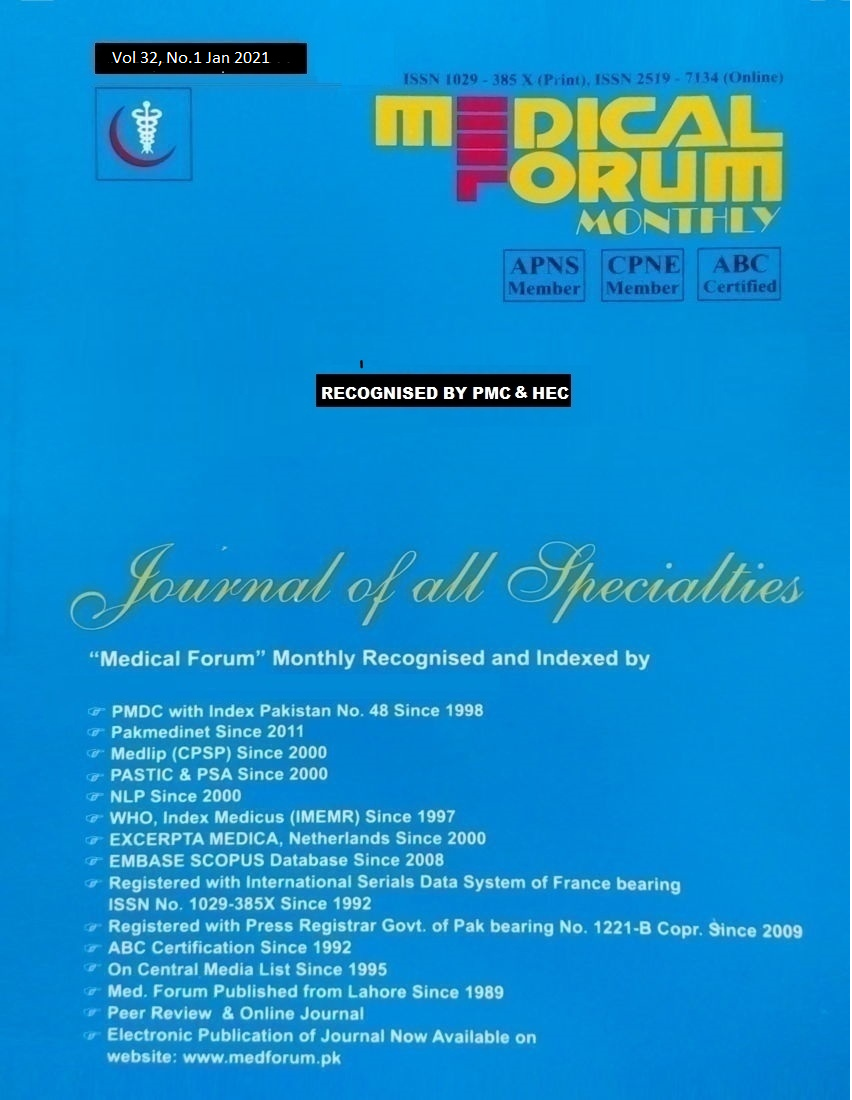
18. Prevalence of Hepatic Dysfunction and its Clinical and Biochemical Spectrum in Children Presenting with Dengue Fever
Kamran Ali Shahani1, Faiza Shahani2, Shazia Begum Shahani3, Nasrullah Aamer4, Muhammad Azhar Mughal5 and Muhammad Yaqoob Shahani6
ABSTRACT
Objective: To determine the prevalence of hepatic dysfunction and it’s clinical and biochemical spectrum in children presenting with dengue fever.
Study Design: A prospective cross-sectional study
Place and Duration of Study: This study was conducted at the Khairpur, Medical College and Teaching Hospital, from June 2017 to June 2020.
Materials and Methods: Liver function of the patientswas assessed clinically as well as biochemically.
Results: Hepatic dysfunction was observed 27.5% of patients. 58% were males and 42% were females. 69.5%, 25.2% and 07% had DF (Dengue fever), DHF (Dengue hemorrhagic fever) and DSS (Dengue shock syndrome) with increasing severity of hepatic involvement.
Conclusion: Dengue fever can manifest with hepatic involvement. Children presenting with jaundice, hepatomegaly and elevated transaminases should raise the possibility of dengue infection and its severity.
Key Words: Hepatic dysfunction, Dengue fever,dengue hemorrhagic fever and dengue shock syndrome
Citation of article: Shahani KA, Shahani F, Shahani SB, Aamer N, Mughal MA, Shahani MY. Prevalence of Hepatic Dysfunction and its Clinical and Biochemical Spectrum in Children Presenting with Dengue Fever. Med Forum 2021;32(1):72-75.
